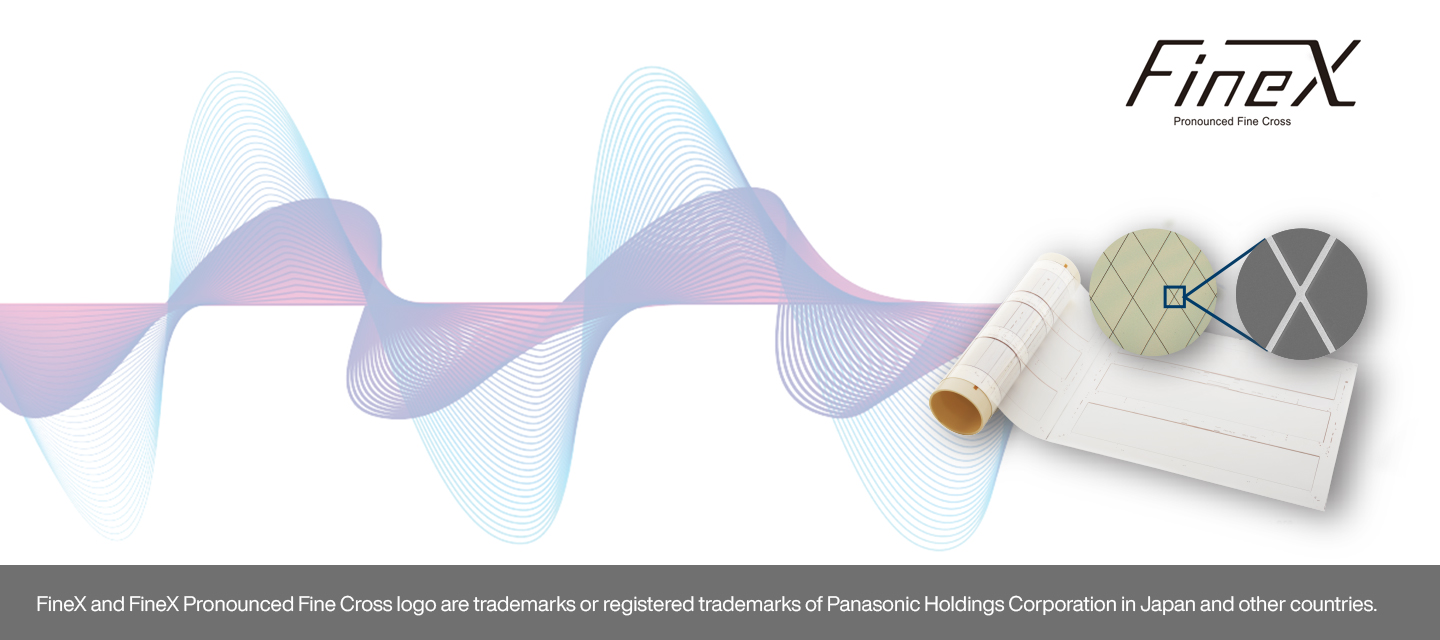
FineX (Fine Cross) Technology
01 Fine wiring
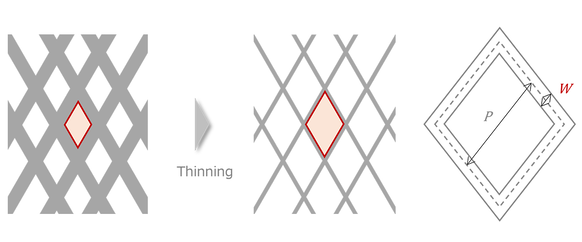
Panasonic's proprietary process has enabled fine wiring widths of 2um or more.
02 High aperture ratio
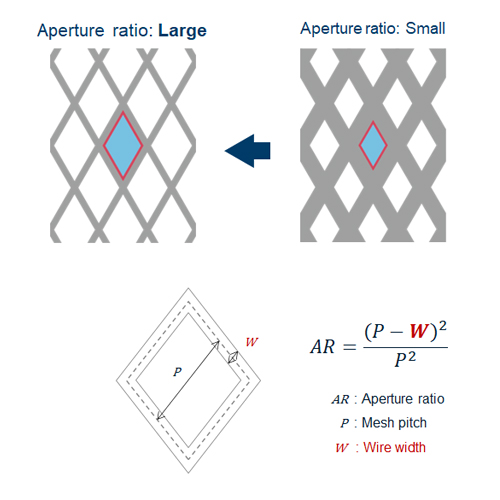
Wire thinning significantly enhances the aperture ratio.
Because metal obstructs light, reducing the width of the metal wiring leads to an increased aperture ratio. The aperture ratio is directly proportional to transmissivity. As a result, Panasonic's Transparent Conductive Film, FineX (Fine Cross), can achieve high levels of transmissivity.
| AR = (P - W)2 / p2 |
AR: Aperture ratio |
03 Visibility of wiring lines
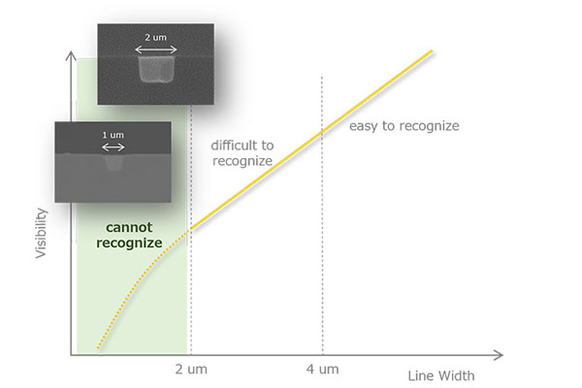
Metal wiring lines can be visible due to light reflecting off the metal, especially if the lines are not thin enough.
However, in Panasonic’s Transparent Conductive Film FineX (Fine Cross), the wiring line width is 2 micrometers or more, rendering the mesh pattern invisible to the human eye.
04 Wiring with high aspect ratio
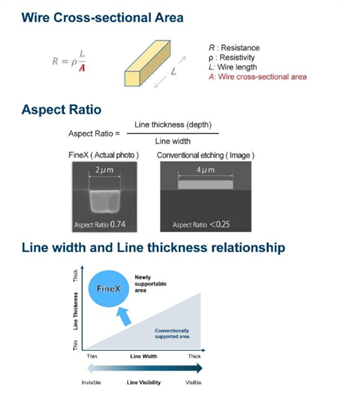
The resistance value of a wire is inversely proportional to its cross-sectional area. To maintain a low resistance, it is necessary to increase the cross-sectional area.
Panasonic’s Transparent Conductive Film, FineX (Fine Cross), is produced using a proprietary process that features wiring lines with a high aspect ratio. This design increases the cross-sectional area in the depth direction while keeping the line width fine.
As a result, FineX achieves fine wiring, which promotes high transmissivity and low resistance.
| R = ρ * (L / A) | R: Resistance ρ: Resistivity L: Wire length A: Wire cross-sectional area |



